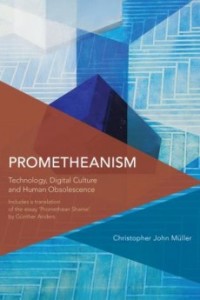DISCUSSIONI / Daniel Ross /
As of the time of writing, the scientific formalization of the Anthropocene remains undecided, but the Anthropocene Working Group has reported that its members almost unanimously consider it to be stratigraphically real, and that a clear majority believe it should be designated as commencing around 1950. While this date could be associated with the so-called ‘Great Acceleration’, that is, with all the massive worldwide consequences of mass-production consumer capitalism, in fact within the working group the currently most popular and highly specific candidate for primary marker has little direct connection to capitalism and none to climate change: the plutonium fallout that resulted from the atmospheric testing of fusion bombs. This fact is thus somewhat anomalous with the ‘everyday’ notion of the Anthropocene associated not just with the marked consequences of the dominant techno-economic system on geographical, biological and other planetary systems, but with the limits of globalized capitalism, that is, with the fact that such consequences can undermine the conditions of the continued functioning of the system as such, due to anthropogenic climate change but also to contaminations and impacts on many aspects of the social or human systems whose function is, in part at least, to ameliorate the disruptions caused by an economy premised on permanent techno-economic innovation, that is, on accelerating obsolescence. And this would seemingly be all the more anomalous for the human and social sciences, which have taken up and taken hold of the concept of the Anthropocene largely by seeing it as calling for a thinking of these limits, and for an investigation of the limits of our thinking to date insofar as its unquestioned presuppositions have been exposed by the harming and destruction of all these systems. In short, this destruction of systems, reaching of limits and inexorable crossing of thresholds has been thought to put in question the very categories of thinking, and especially insofar as this thinking remains imprisoned within a confused metaphysics of the human, the natural and the technological: what the Anthropocene calls for, then, would amount to a kind of paradigm shift in thinking itself.


